CP2: Targeted use of mineral fertilizers and bio-effectors with crop protection effect
From a fertilization perspective, the project pursues a strategy that lies somewhere between conventional and organic farming. When applying mineral fertilizers in line with requirements, particular attention is paid to suppressing infestation, increasing resistance, and promoting stress tolerance.
The focus here is on the following minerals and fertilizers:
- zinc, manganese, silicon
- combinations of nitrate and ammonium fertilization, microbial and non-microbial biostimulants, micronutrients and silicon
- combinations of organic fertilizers with a microbial consortium having bio-stimulating properties
- combination of the application of algae extracts and chitin-based substances, micronutrients and stabilized ammonium vs. nitrate fertilization
The aim of these trials is to test the feasibility of resource-conserving agriculture without chemical-synthetic plant protection using various fertilizer treatments and quantify their protective effect. These treatments complement other measures such as modified crop rotations and crop management starting at sowing. Yields in the system to be tested should be close to conventional yields and, in any case, clearly superior to organic farming.
The following hypotheses will be tested in detail:
- In the NOcsPS cropping system, the above-mentioned prophylactic treatments reduce the infestation pressure with pathogens and the weed density.
- In NOcsPS cropping systems, the prophylactic use of adapted fertilization strategies can reduce susceptibility to disease.
- Increasing tolerance to plant diseases through treatment with microbial consortia, algae extracts, Chitosan, Zn/Mn or Si and combinations of these components.
- The fertilization measures mentioned lead to balanced material balances and negligible discharges into the environment.
A doctoral researcher (PhD student) will investigate the interaction between different fertilizers and the application of bio-stimulants with plant protective properties (microbial and non-microbial biostimulants and micronutrients Zn, Mn and Si). The focus is on disease suppression in the wheat crop under field and greenhouse conditions.
Furthermore, the effects of plant strengthening, fertilization, and direct pathogen defense on plant growth, yield, nutrient content, chlorophyll content, and pathogen infestation will be recorded and evaluated. In addition, metabolic processes associated with pathogen defense and tolerance are characterized, and the microbial community in the rhizosphere is investigated.



